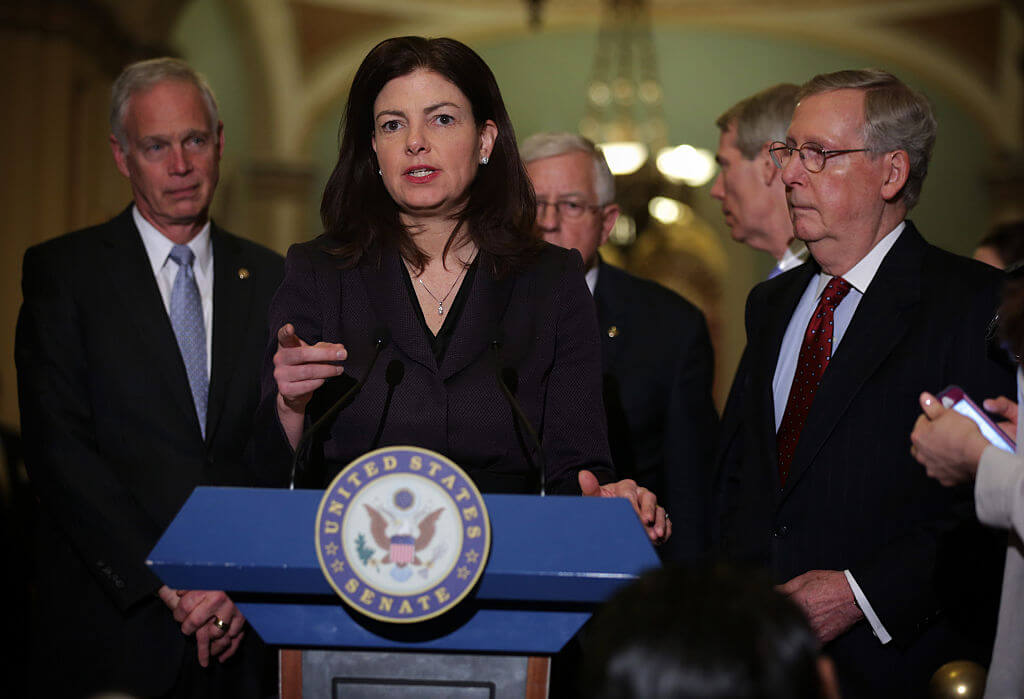While the presidential election is getting the vast majority of media buzz, these key Senate races will have a crucial impact on the policies and goals of our next president.
In order to take control of the Senate, the Dems need four or five seats, depending on who becomes president; the vice president serves as a tie-breaker for the Senate, so if Hillary Clinton wins, her VP Tim Kaine would essentially tip the Senate into a Democratic majority even if they claim the same number of seats as Republicans (50). (Note: There are two independents in the Senate who tend to vote with the Democrats, so we’re counting them here in the Dem camp.)
The following nail-biter states will likely decide the fate of the 2017 Senate.
New Hampshire
In the Granite State, incumbent Republican Sen. Kelly Ayotte is facing a challenge from incumbent Democratic Gov. Maggie Hassan. The two have been going back-and-forth in the polls with single-digit leads over one another all year. As of mid-October, Ayotte has an average 2.3 percent lead over Hassan from the month’s three polls, the most recent of which had the candidates tied.
In an October debate, the candidates hit one another hard over their parties’ presidential candidates, attempting to translate widespread dissatisfaction with the presidential nominees into distrust of one another.
Neither candidate toes her party’s line closely. Hassan supports barring Syrian refugees from entering the United States and keeping Guantanamo Bay open, for example, while Ayotte recently handed out condoms on the campaign trail (she’s against abortion, and thinks contraception should be more easily accessible).
North Carolina
North Carolina is a state with a mostly steady recent history of voting red. That could change in 2016. Voters appear to be rebelling against Republican presidential candidate Donald Trump; Clinton has a three percent lead over him on average in the state’s polls, and has bested him in every poll since mid-September.
That shift to the left could transfer to the down-ballot races as well, particularly in this state, whose House Bill 2 (aka “the bathroom bill”), signed into law by Republican Gov. Pat McCrory, is highly unpopular. Meanwhile, incumbent Republican Sen. Richard Burr is feeling the heat from Democratic opponent Deborah Ross; he’s polling an average 1.9 percent ahead of her.
Let’s just say: it’s not exactly the best year for the Republican Party in North Carolina.
Missouri
Typically a Republican stronghold, Missouri has been mixing things up lately. In 2012, Democrat Claire McCaskill won election to the Senate, and, in 2016, another Democrat may take the state’s second seat.
Democratic candidate Jason Kander is challenging Republican incumbent Roy Blunt. There hasn’t been a whole lot of polling in the state, but three conducted between September and mid-October show a tight race, with Blunt leading by 2.3 percent on average.
Kander, a 35-year-old who currently serves as Missouri’s secretary of state, is hoping to capitalize upon “down with the establishment” sentiment and bring new blood in the Senate by ousting Blunt.
Pennsylvania
The Senate race in Pennsylvania is a real toss-up, with Democratic challenger Katie McGinty virtually tying incumbent Republican Pat Toomey. Clinton has been steadily polling ahead of Trump in the state, and that Democratic lean could benefit McGinty on Election Day.
Then again, Toomey isn’t exactly your average Republican; he went to bat for expanding background checks on gun purchasers, counter to the party line, which has been firmly resistant to gun legislation. That independent style could appeal to some Democrats and left-leaning independents or mean that Toomey is the exception to the rule when it comes to down-ballot voting.
Nevada
Nevada is probably the only state where Democrats will have to work to maintain their reign; if they lose ground here, it could wipe out their path to a majority in the Senate and give Republicans extra space to maintain their majority.
[postquote]
Less than a month ahead of the election, the Nevada Senate race is, as with Pennsylvania, a virtual tie between Republican Joe Heck and Democrat Catherine Cortez Masto. The two are vying for the seat of retiring Democratic Sen. Harry Reid.
Heck served three terms in the House of Representatives, while Cortez Masto was an attorney general. Heck revoked his endorsement of Trump following the “pussy grab” recording debacle. Clinton has maintained a small but steady lead in Nevada polls since late September, which could boost Cortez Masto on Election Day.
Takeaway
Control of the Senate in 2017 could go either way. These five states hold the most power in determining which party holds a majority. Given the heavy hand the Senate plays in either passing or blocking legislation, these races deserve our attention as much as the Clinton/Trump saga.
Have something to add to this story? Comment below or join the discussion on Facebook.
Header image: Getty









































